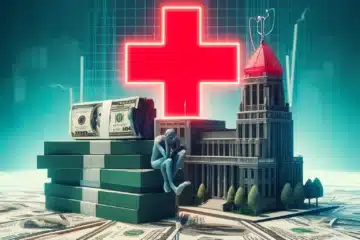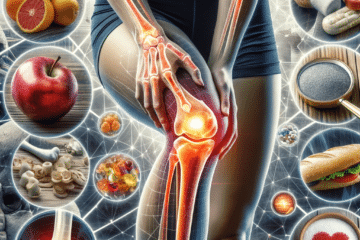
Listen to the patient: He is telling you the diagnosis,” Sir William Osler
Most patients are interrupted by their physicians after 18 seconds… yes 18 seconds.
Well, that isn’t going to cut it anymore.
Patients are individuals. They have differing ideologies, values, goals, pain thresholds, lifestyles, and few patients react the same way to the same disease process.
Enter the days of Informed Decision Making …
Poor communication and poor listening skills are likely at the heart of this emerging high tech-low touch method of treating patients these days. In these days of medical data overload, it is becoming far too easy to order and treat a lab test or MRI, as opposed to treating a patient as a person.
Each injury has its own “personality”. That means that an ACL tear in a couch potato who slipped picking up their newspaper probably needs to be treated differently than a patient of the same age who exercises twice a day and plays every sports under the sun. Yet, of all the second opinions I am seeing that doesn’t seem to be the case. In most cases patients are being told – “your MRI showed this and you need that”…
Incorporating the art of informed decision-making into your daily workflow means you need to listen to your patient. You need to dive deep into their own ideologies, values and goals that will shape their decision when presented with the alternatives available. Your are a coach, you are part of a team that will arrive at the right choice for that patient at this particular time. You will need to listen for more than 18 seconds … and you will need to learn to treat patients as people and not as a disease state or an MRI finding.
Physicians feel rushed because they’re trying to maintain their income as their reimbursements decline and they need to spend more time filling out reams of paperwork to justify many of their requests or actions. We need to adjust to this new reality without putting our patients health at risk… or without recommending a procedure that someone clearly doesn’t need.
In a recent NY Times piece.. The author, Seth Horowitz points out ..
Listening is a skill that we’re in danger of losing in a world of digital distraction and information overload.
“You never listen” is not just the complaint of a problematic relationship, it has also become an epidemic in a world that is exchanging convenience for content, speed for meaning. The richness of life doesn’t lie in the loudness and the beat, but in the timbres and the variations that you can discern if you simply pay attention.
Embracing the art of listening will lead to better treatment decisions, better resource utilization, fewer medical errors, a happier more engaged patient base and hopefully a physician who once again can enjoy the non-monetary rewards of a career in medicine.














This is so true. And it’s not new – I saw the same thing 20 years ago in my neurosurgical practice. Patients sent because of an MRI or CT finding rather than a clinical need. And patients with poor outcomes because making their x-ray look better doesn’t solve their actual problem.
When you are so full of answers after 10 years of post-graduate training at the finest educational institutions, it is incredibly hard to bite your tongue and actually listen. And it is amazing what you learn from the patient when you do!
Thanks for stopping by Joe! It’s obvious that I agree with you 100% !!!! High Tech-Low Touch and no Listening is a recipe for waste, unnecessary procedures, medical errors, harm and a huge waste of money…. Once again, thanks for stopping by!
Howard Luks
I believe technology and social media actually increases our opportunity to listen to the patient. In the past we needed to squeeze everything into our consultation in our office, keeping in mind that there were patients waiting outside to be seen. The reimbursement I was going to receive barely covered the costs of setting up the practice, rent and staff. There was a lot of incentive to get the patient in and out as quickly as possible.
Add to that the patient was usually nervous if not down right scared about what I was to tell them, and was paying to hear my supposed “words of wisdom” all of which was not very conducive to a conversation.
Now with patient portals, personal health records, and social media the patient has the opportunity to develop their own rich history, which I can peruse at a time which suits me. I can ask them questions online and get an answer, which they have had some time to contemplate. If need be I can chat to them over a video conference to get more information, at a time that works for me in my practice, because the patient can do it from home rather than take the time to get to my waiting room.
This is real participatory medicine, the only impediment being that often the current reimbursement model doesn’t pay for much of this service, so either the patient or the doctor is out of pocket.
Thanks George! I obviously wholeheartedly agree with you.
Appreciate you stopping by.
Howard Luks
Great post Howard!
Actually we, in the sense of all of us who are in the business of innovating health care, are changing step by step by insights such as this. It proves that the interaction and interrelation between care providers and patients not only have influence of what is cognitively appreciated, but also on what is “taken” in as perception and meaning – obviously with a high impact on health outcomes of the process.
Another influence goes through our “processing system” both consciously and unconsciously. I like to refer to the work of the Dutch professor Jozien Bensing who studied the influence of the placebo effect. See here: http://bit.ly/10DBQrw
She is professor of Health psychology and her theme is “the power of attention”.
So indeed, a change in attitude to listen rather than to speak may help us getting on! ;-)
Thank you Rob…. I see it more of a return to the relationship that people once had with their physicians. The days of high tech-low touch are upon us…. and this is leading to over-utilization of technology – over-diagnosis of routine degenerative findings – and over-treatment of entities that usually do not require evaluation or intervention. I would welcome a return to the times when we wanted to know about our patients, their stories, their issues and how that would shape their ultimate treatment recommendations — and health.
Sometimes less is more… and sometimes … spending a few minutes listening is worth far more than any expensive tech utilization is worth.
Howard
Right you are Howard! Let’s be aware of all aspects of communication!
Rob
Great post. Thank you. We would probably all agree that “listening is a curative”.
Our pressurized system of technical testing, diagnosis, treatment, prescription and volume needs an attentive human ear.
Rhana
Amazing! This article just about sums up the main obstacle in my practice, specially nowadays where the patient comes for consultation full of “self diagnostics” made by researching the internet. Excellent!